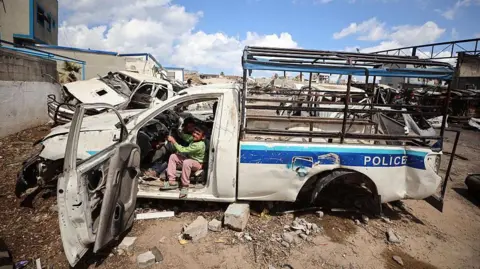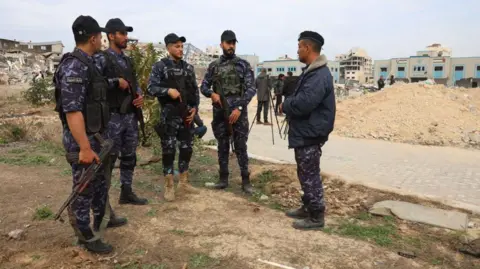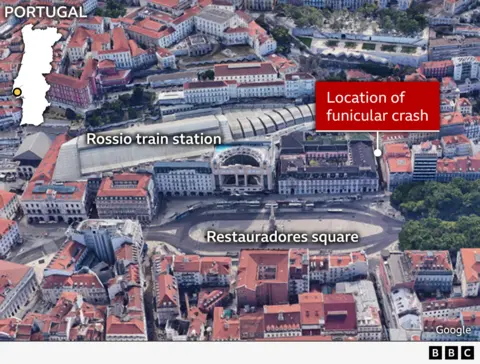Hamas Losing Grip on Gaza Amidst Internal Collapse and Rise of Armed Clans, Security Officer Claims
Hamas Losing Grip on Gaza Amidst Internal Collapse and Rise of Armed Clans, Security Officer Claims
A stark internal assessment from a senior Hamas security officer reveals a dramatic erosion of the group’s authority in the Gaza Strip, with the officer estimating that Hamas has lost approximately 80% of its control. This assertion, shared with the BBC under strict anonymity, points to a critical juncture for the militant organization, suggesting a near-complete collapse of its command and control structures following months of intense Israeli military operations.
The officer, who was injured early in the conflict and has since stepped back from active duty, described a devastating impact on Hamas’s leadership. He stated that an estimated 95% of the group’s leadership has been killed, leaving the organization in a state of profound disarray. This internal disintegration, he argues, has created a significant security vacuum across Gaza, a territory Hamas governed prior to the current hostilities.

According to the officer’s account, attempts by Hamas to regroup during a previous ceasefire earlier this year proved futile. Subsequent Israeli actions have relentlessly targeted the group’s remaining command functions, exacerbating the internal breakdown. The officer painted a grim picture of the current security situation, stating, “it has completely collapsed. Totally gone. There’s no control anywhere.” He further elaborated on instances of widespread looting, including the emptying of Hamas’s former primary security apparatus, the Ansar complex, with no intervention from any security forces.
The consequence of this pervasive security vacuum is the alarming rise of armed clans and local groups filling the void. These entities are reportedly well-resourced with weapons and personnel, operating extensively throughout Gaza, particularly in the southern regions. One prominent figure mentioned is Yasser Abu Shabab, whose growing influence has attracted attention from regional powers and the Palestinian Authority. Notably, Israel has confirmed providing weapons to Abu Shabab’s network, a move that underscores the complex and shifting dynamics on the ground.

Hamas, perceiving Abu Shabab as a potential unifier for its diverse adversaries, has reportedly placed a significant bounty on his head. The officer expressed deep concern, stating that if Abu Shabab manages to rally these disparate forces, it could signal “the beginning of the end” for Hamas. This sentiment is echoed by a retired Palestinian security official, who noted that Abu Shabab’s network is gaining momentum and could become a focal point for opposition to Hamas rule, with potential clandestine support from various intelligence agencies and political factions.
The situation in Gaza is increasingly characterized by lawlessness, with entire neighborhoods reportedly falling under the control of gangs. This internal vulnerability, coupled with external pressures, places Hamas in a precarious position, facing challenges not only from Israeli military actions but also from rising internal dissent and the fragmentation of its own authority. The officer’s testimony paints a picture of an organization grappling with a fundamental loss of control, facing an uncertain future as internal and external forces challenge its dominance.



Post Comment